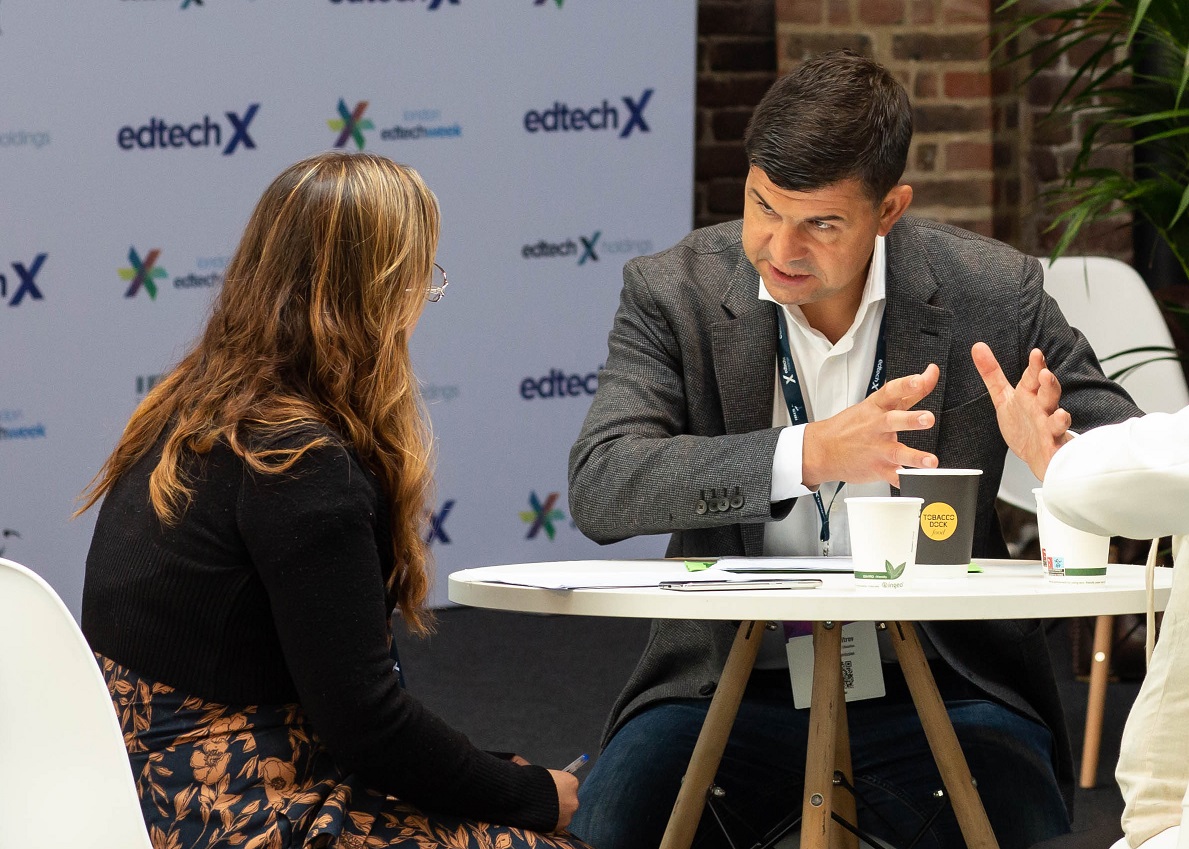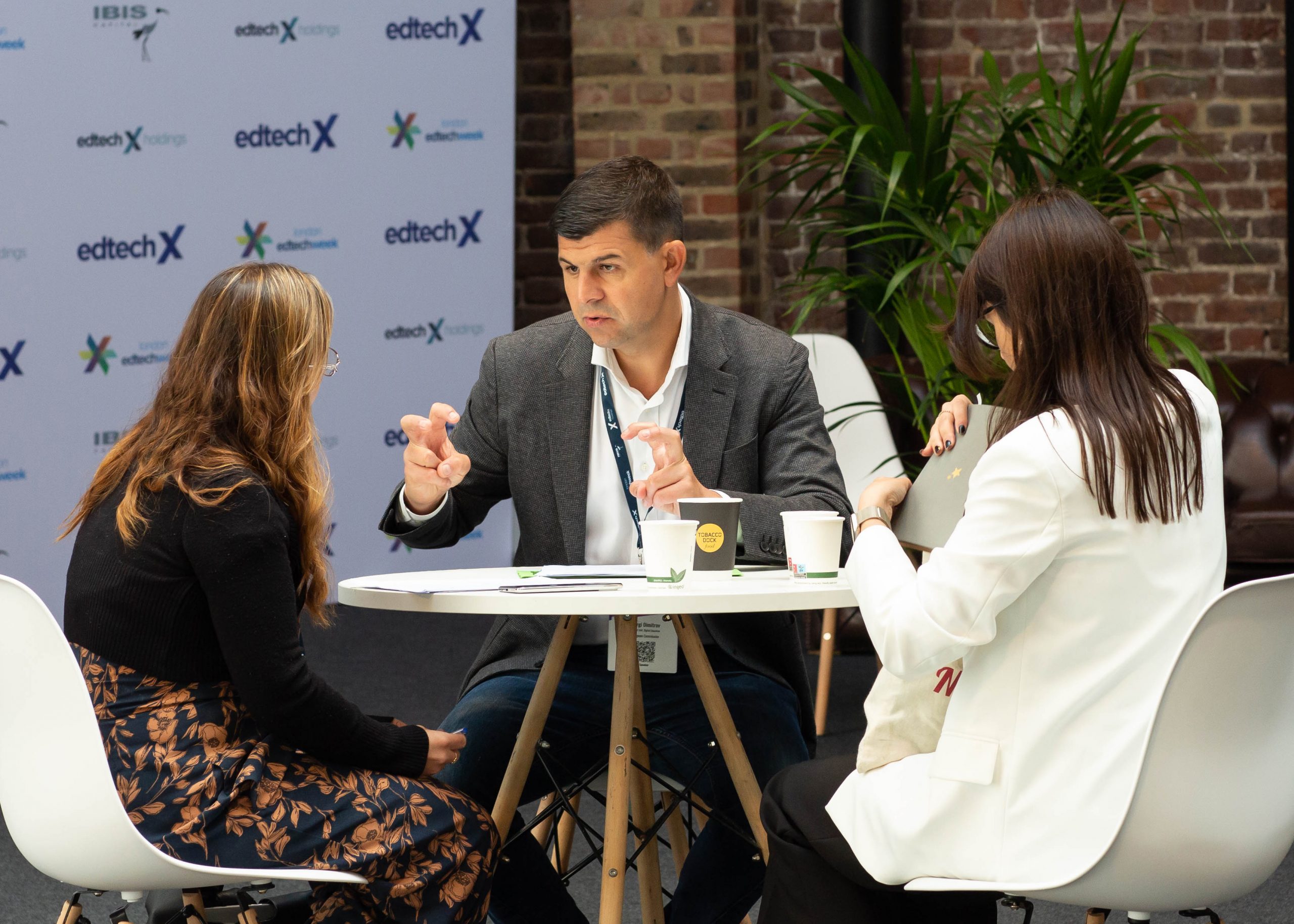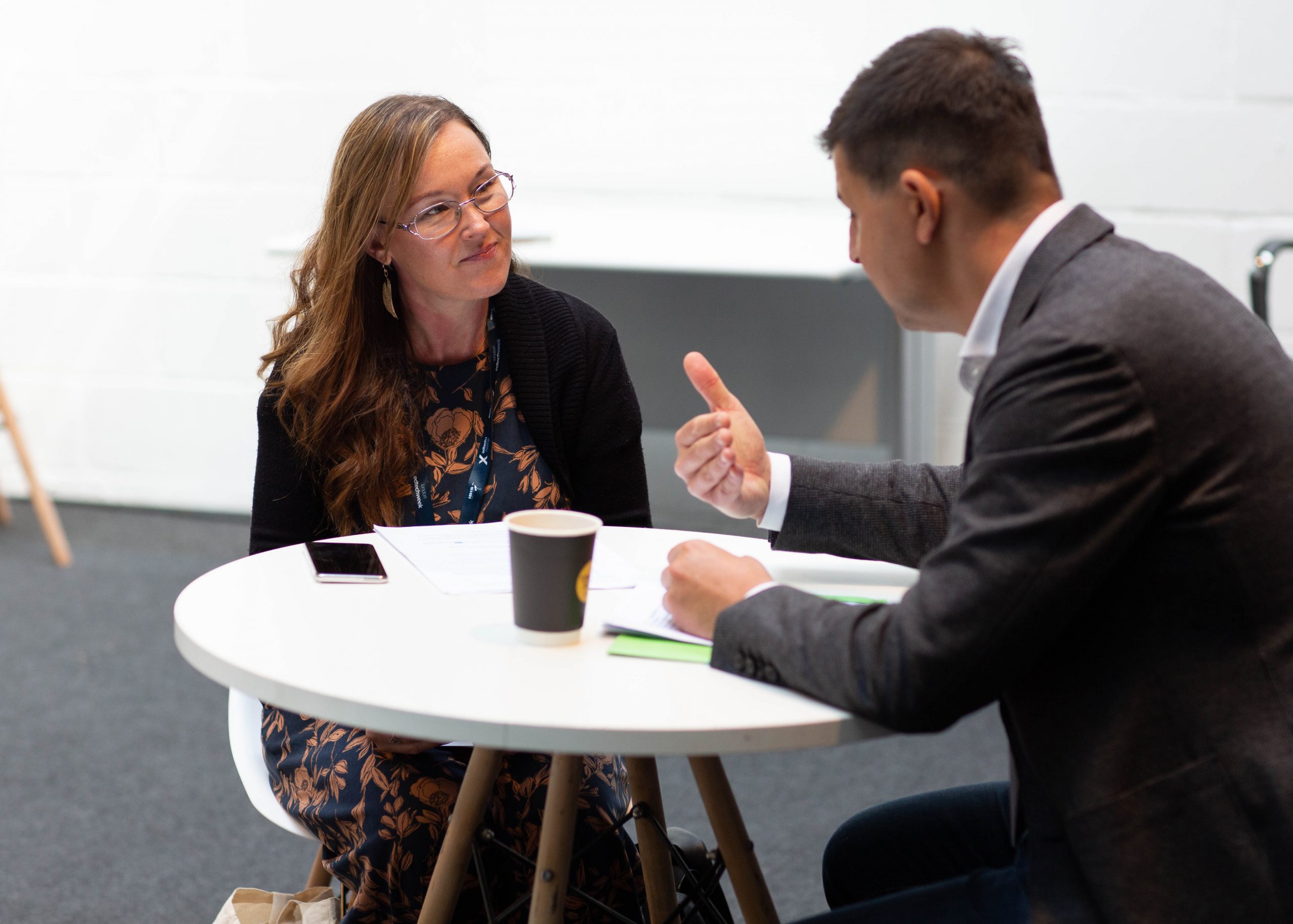The head of the digital education unit in the European Commission (EC), Mr. Georgi Dimitrov, who held a talk at the EdTechX summit titled “Initiatives to Foster a Digital Education Ecosystem” met with our Editor in Chief Manuela Willbold and here are some of the burning questions he answered.

1. How come you are so passionate about digital education and what is your background with regards to this field?
“I have been working with the EC for 14 years and during my first year there I started working in digital education. I thought it could not be that impactful as this was in 2008 and the technology was not that matured yet. So, I focused on innovation policy and then I returned to initiate the Digital Education Action Plan, which I co-developed. It was an attempt to create a conversation around digital education. It was also not as ambitious as it was more like a pilot in the first 3 years. But when the Commissioner president Ursula von der Leyen entered office in 2019, she wanted to do a new digital education action plan and so I took this job to lead its development.”
2. Listening to your talk earlier, you touched on policy and the free market and how they can come together. Could you elaborate on how the EC can help to ensure education standards are met and outcomes are measured and monitored?
“I think it’s about initiating a conversation across two different mindsets. We are here at EdTechX as we’re looking at this globally. You can look at the US and China and you see a completely different picture. So, I think what we are trying to communicate is that any type of digital business would need to adhere to specific principles.”
“We have been proposing specific legislation over the past years such as the “Digital Services Act” and the “Digital Markets Act”, there is also an “AI Act” in the parliament and the council, and I would say these are fundamental principles which would need to be adhered to in the digital economy. Many entrepreneurs in this industry create a software or app with the goal to sell it. I would say that the key issue is not the software development itself, but other underlying factors which are not yet completely clear.”
“The second problem that can be identified is that there is a mismatch between the market and the supplier, and that more regulation and guidance could help, but we see in countries with a lot of autonomy like Estonia and Finland and in the results of PISA that this leads to good outcomes and innovation. So, we have a long-term mission to promote the dialogue between the industry and the policy and we want to allocate specific funding for these purposes, and this would be through Erasmus. Our goal is to see cooperation between national authorities and start-ups or SMEs as well.”
3. How can education providers offer high-quality learning content, user-friendly tools and secure platforms which respect e-privacy rules and ethical standards and how does the EC support them with this endeavour?
“I will say that we’re not there yet. The brief for the next 3 years will be to go into this direction. There are some limited attempts to move into national guidelines, however, there is currently not sufficient pedagogical research to use as a resource. Many member states are asking a lot of questions as they are confronted with all this expansive education technology and we have a well-established quasi standard which is called “Digital Competence Framework”, which was developed in the EC 11 years ago and today it’s well adopted in over 20 member states.”
“This framework underlines digital competence in schools and so on. But whether the software developers try to consider this framework for their products or not is outside of the EC’s control. I would say that education providers may want to use a solution that is in line with our digital competence recommendations, but given that technology changes and advances so quickly, there would need to be more guidance around data privacy and access, the pedagogical implementation and to my best knowledge, this has not happened yet.”
4. Do you have any recommendations for education providers or schools to effectively manage student data privacy etc.?
“This would be more of a member states responsibility and with GDPR in place, they would need to ensure compliance. We would need to go a bit further. We have set up a Commission expert group last year to develop guidelines on the use of Artificial Intelligence and Data in Education, which is aiming to address teachers directly as it’s a more practical document. Our expectation is that our commissioner will present these guidelines this autumn which may provide some orientation.”

5. In which ways can the EC ensure that girls and young women are equally represented in digital studies and careers?
“I think that this is a problem of society at large. However, we have a project I am very excited about to raise more awareness. It targets girls aged 14 to 19 years to develop their digital entrepreneurial skills which is called “Girls Go Circular” and here we have essentially an online training programme that focuses on specific areas of interest such as fashion or sustainability. We have offered 7000 slots in 2021 via an online platform which is currently available in 12 languages, and we conduct active outreach in the member states through schools and teachers.”
6. How can families be supported with using education technology at home and with teaching digital skills to ensure learning outcomes are achieved even when students must study from home as seen during the most recent pandemic?
“During our public consultation for the digital education action plan we have received quite revealing information from the public, which we’ve never received before or at least not during my career in this field, which was that around 40% of the respondents were parents, which was a clear indication for us that there is a problem. This issue is very much related to the Covid crisis, and we need to distinguish clearly what we expect from parents as it’s not their job to teach their children in the first place.”
“But it is of course desirable to equip parents with knowledge about data privacy and so forth. So, we are actively talking to parent’s associations at EU level, and they have been quite interested in the work we do. They were particularly interested in the topic “how to tackle disinformation”. Therefore, I would say that we can help to raise awareness of the more horizontal challenges in terms of the civic education process, but we should certainly not ask parents to be teachers.”
7. What can the EC do to help bridge the gap between the different approaches in digital education by member states?
“We must look at general conditions to enable digital education and this is about access to infrastructure, equipment, and teacher training and then there is how each country on a national level wants to develop digital skills by for example teaching computer science. Some member states integrate computer science into other learning areas. What we as a commission are interested in doing is to support the level playing field so that everyone has the same conditions to succeed. Obviously, the challenge lies in technology and policy moving forward in different speeds, but we are on it.”
Mr. Georgi Dimitrov has led the development of the first Digital Education Action Plan adopted in January 2018 and of the new Digital Education Action Plan 2021-2027 that was adopted in September 2020. We thank him for his time and insightful answers.

The EdTechX summit offers great and insightful talks, workshops and networking opportunities as you can see in our summary video:
Author Profile

- Online Media & PR Strategist
- As the Chief of Marketing at the digital marketing agency ClickDo Ltd I blog regularly about technology, education, lifestyle, business and many more topics.
Latest entries
 EntertainmentJuly 18, 2025London’s Swinger Scene Summer Trends Revealed: Swinging Cruises, Roadside Diners & Digital Swinging
EntertainmentJuly 18, 2025London’s Swinger Scene Summer Trends Revealed: Swinging Cruises, Roadside Diners & Digital Swinging Health & BeautyJuly 16, 202513 Iconic London Tattoo Shops with Tattoo Artists Celebrities Trust
Health & BeautyJuly 16, 202513 Iconic London Tattoo Shops with Tattoo Artists Celebrities Trust DictionaryJuly 4, 2025Spa Etiquette Guide: Essential Tips for London and UK Luxury Spas
DictionaryJuly 4, 2025Spa Etiquette Guide: Essential Tips for London and UK Luxury Spas BusinessJune 30, 20254 Affiliate Marketing Trends Every London Business Should Watch In 2025
BusinessJune 30, 20254 Affiliate Marketing Trends Every London Business Should Watch In 2025


